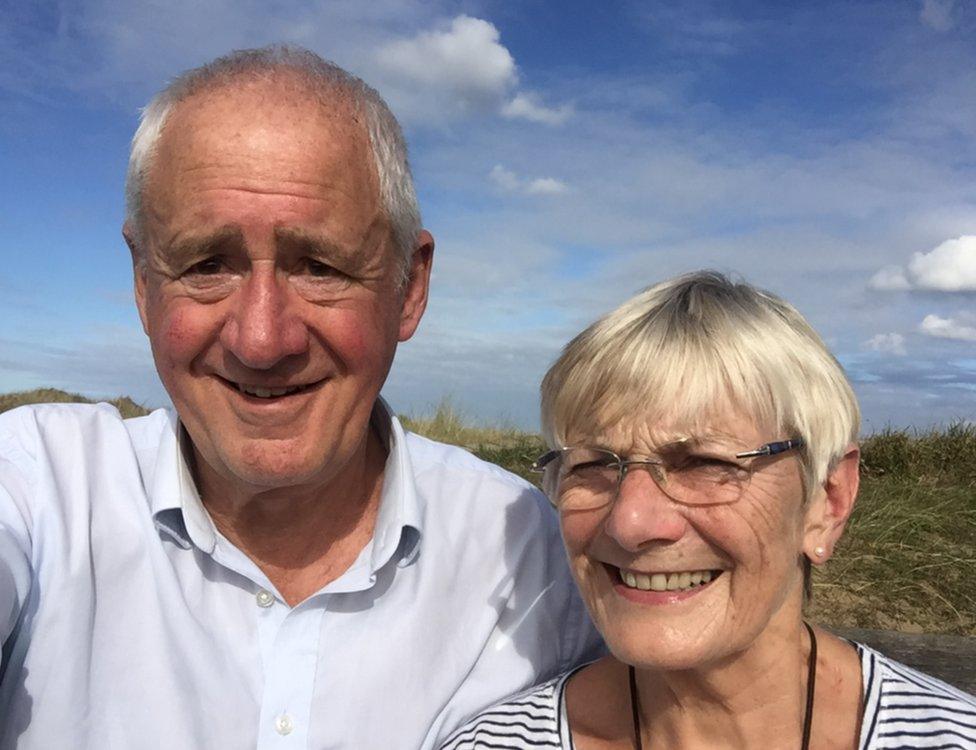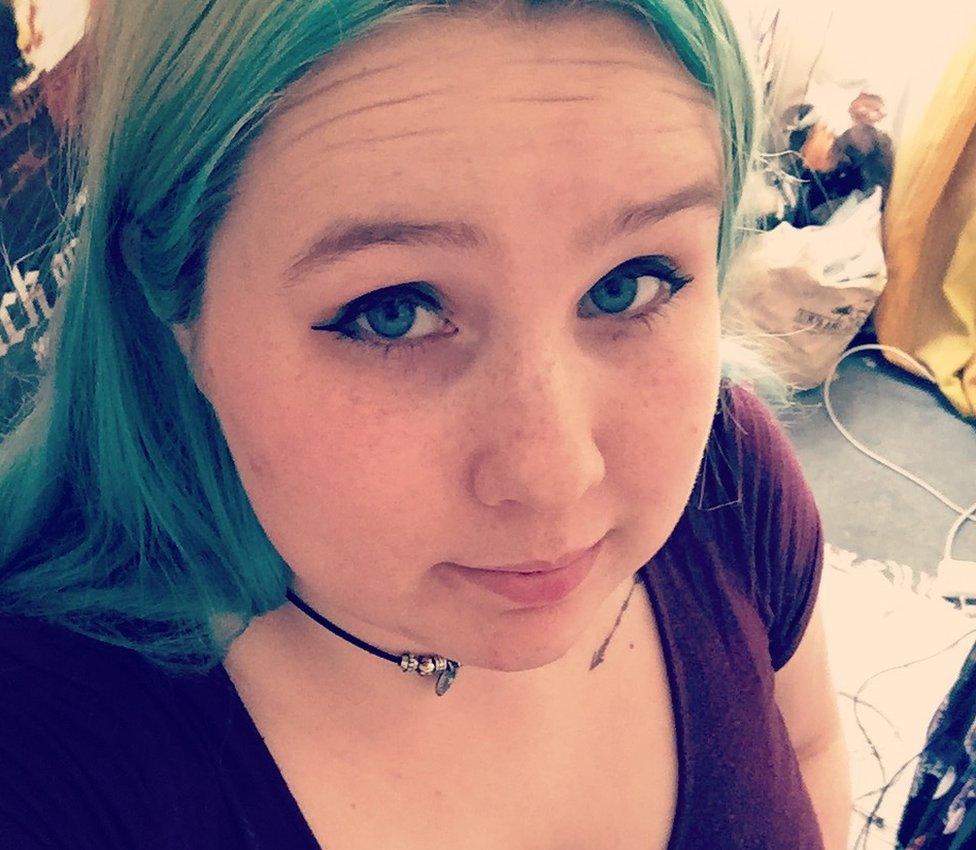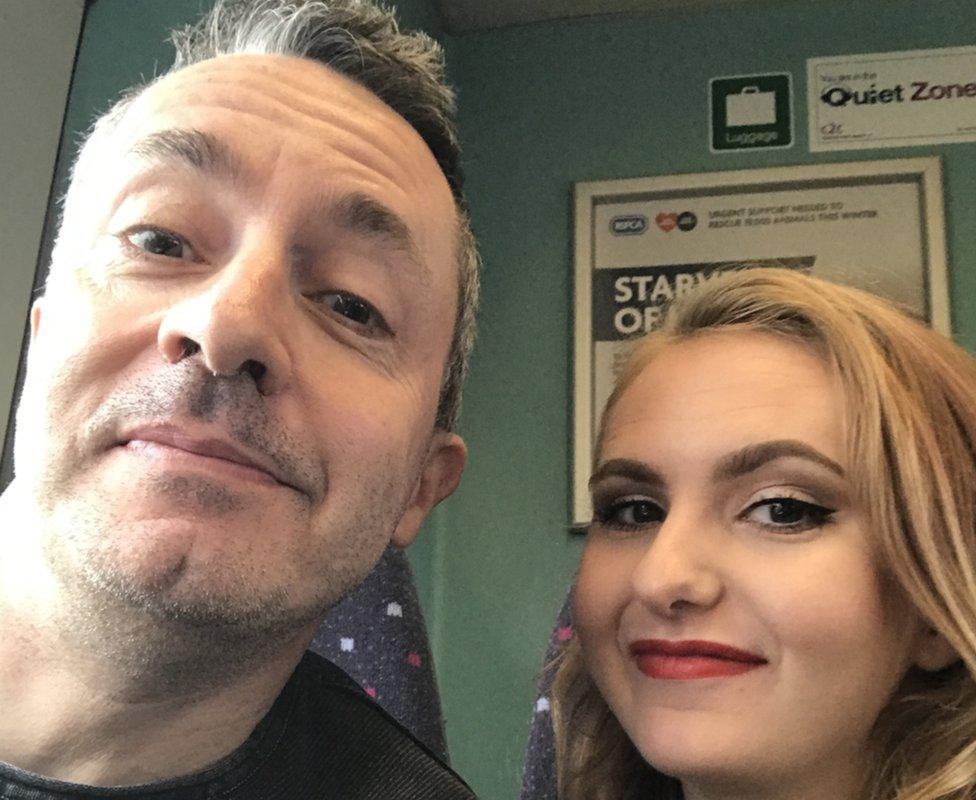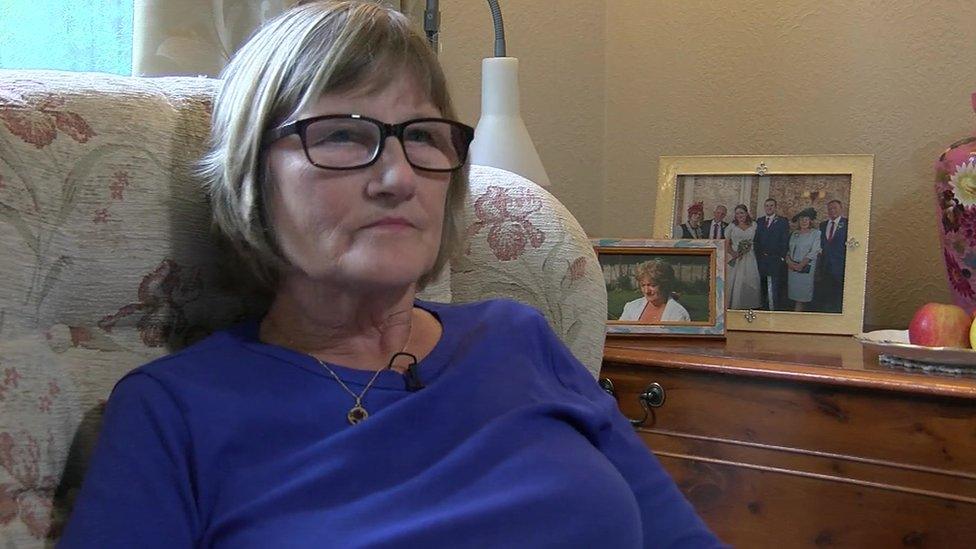'I spent my savings rather than wait for the NHS'
- Published
Hospital services are facing mounting pressure. Staff shortages, rising demand and a squeeze on budgets mean waiting times are rising in many places.
And while the health service still sees most patients quickly - whether they turn up at an accident and emergency unit, need cancer treatment or have to have an operation - growing numbers are having to wait longer than they should.
So what is it like for those caught up in the system?

'I waited so long I gave up and spent most of my life savings'

Christine Moon, pictured here with her partner, Geoff, waited for months for a coronary bypass on the NHS
Christine Moon, 66, was on holiday in Bali in 2015 when she started feeling chest pains. When she returned to her home in Wellingborough, Northamptonshire, she went to see her GP and ended up in hospital having all number of tests on heart.
"Eventually, they said, 'I'm very sorry, but we've decided you have a 90% block in your coronary artery,'" she told BBC News.
This was in August last year. She then waited until November to see a consultant, who said she needed a coronary bypass but there would be an additional 18-week wait.
So, 18 weeks later, she rang the hospital.
"I was told they were way behind and they had absolutely no idea where I was on the waiting list," Ms Moon told BBC News.
"No-one at the hospital could tell me when I was likely to have my operation."
Every week, patients in more critical need of a bypass were being referred to the hospital, effectively bumping her further down the queue, she said.
"I couldn't do any housework, I couldn't do stuff that I normally did. My symptoms were getting worse, but I wasn't going to have a heart attack."
In April this year, 32 weeks after being diagnosed, she gave up on waiting and paid £16,000 to have the operation privately.
"I had to think long and hard about it, but it was really hanging over me," Ms Moon told the BBC.
"I was more and more depressed, and just not able to get an answer out of anyone."
Having the operation had given her "bags of energy" and her life back, she said.
But, she is angry and has spent much of her savings.
Ms Moon told the BBC: "Eighteen weeks seems to be this magic number they come out with that is just lies.
"Would I still be on a waiting list if I had not gone privately? I may well have been."
If you can't see the NHS Tracker, click or tap here, external.

'Doctors want something they can fix in 10 minutes'

Holly has had many complex health conditions since she was a child
Holly Wilson was nine years old when she started seeing doctors on a regular basis. She had a condition where her white blood cells infiltrated her bowel, causing inflammation and pain.
Since then, the 22 year-old, from Chichester, has been in and out of hospital.
"The list is endless," she said, of the number of medical conditions that cause her day-to-day pain.
Her entire body is affected, including her connective tissue, joints and gut, and once she had a cyst on her ovary "the size of a grapefruit".
"At one point, I was in hospital 30 times in a year," Ms Wilson told the BBC.
"There are a lot of problems - I'm very, very complicated. I'm always known as the difficult, complex patient."
She has noticed waiting times increase, and recently had to wait more than 10 hours for a medical slip to give to her employer to allow her to return to work.
Her most recent medical issue is a fast heart rate and palpitations.
Doctors are trying to diagnose what is causing it, but it can take up to 18 months between being referred for tests and getting the results.
"The long wait for this diagnosis - it's a lot of not really knowing, which makes it stressful," Ms Wilson told the BBC.
"Doctors want something they can fix in 10 minutes."
"They're trying to see so many people in such a short amount of time."
But Ms Wilson's three folders of medical history do not make this easy.
"Doctors look at all these notes, and they're just too much for one person to take them in," she said.
"I don't feel the notes are being read or paid attention to as much as they should be."
Ms Wilson doesn't want to "bash the NHS".
"They have done a lot for me. Without them I wouldn't be alive," she said.
"It's just frustrating as I have been in and out of hospital since I was very small and I have noticed the change."

'My wait was so long I launched a formal complaint'

Andy Goble waited almost a year for an operation that would fuse his talonavicular joint
Andy Goble, 48, had painful arthritis in his feet. He had one foot operated on and then, a couple of years later, in August 2016, doctors said they needed to operate on the other.
"The idea of the operation is to fuse two bones in the foot to stop them grinding together and stop the pain," he told the BBC.
The condition means he struggles to walk any great distance and lives in continual pain.
Even though he works from his home, in Southend-on-Sea, the condition has affected his work as a web designer.
"I am self-employed and find it impossible to work all day," he said.
"I am also unable to drive much of a distance if I need to visit clients.
"This is starting to cause me financial problems."
The father of two has also had to take painkillers, which tire him out.
He waited an "absolute age" to receive a date for the operation, which was then cancelled a week later.
And in May, after many phone calls, he decided to launch a formal complaint.
"Then, all of a sudden, everyone jumps and gets involved," Mr Goble told the BBC.
The hospital had "bent over backwards" to get the surgery done, he said, scheduling operations "at weird and wonderful times", with his taking place on a Sunday morning 15 weeks ago.
He can now walk again, but his foot remains very painful as it recovers.
"Because it's not life threatening - it's just pain-relief surgery - you come bottom of the list," he said. "It's always the lowest priority."
"There is knock-on pain to other joints, such as the knee, hip and back. So, while you're waiting, the condition gets worse and affects your life more and more."

'I waited almost six weeks for an urgent appointment when I had late-stage cancer'

It was February 2014 when Susan Down, now 65, first thought something was wrong.
"It was quite sinister what I found, the lump," she told the BBC.
"I'd had it for quite a few weeks, and it was getting worse."
She saw a GP, who gave her creams for piles.
A couple of weeks later, when things hadn't improved, the GP gave her a referral for an emergency appointment.
Despite it being deemed urgent, her local hospital wasn't as quick to respond as she had expected.
"I was quite anxious. I kept calling the hospital," Ms Down told the BBC.
Five and a half weeks later, she got an appointment.
"Then they were running around like headless chickens," she said, giving her six different tests over the next fortnight.
Her daughters and partner went with her to the appointment. She was told she had stage-four anal cancer and that her tumour was 2.5cm (1in).
"It hadn't metastasised, but it was very big and pushing it's way to the front," Ms Down told the BBC.
"If it had gotten right through to the front, I would've been poisoned."
Her diagnosis caused her to retire from her job, as a support worker for adults with learning disabilities.
It took a couple of months before she was fitted with a stoma, and then she had to wait a couple more months before she could get radiotherapy.
"The doctor said, 'Lets get on with it or else you will die,'" Ms Down told the BBC.
The radiotherapy machine at her local hospital was not appropriate for her so she had to be treated in a specialist hospital in Hertfordshire, a two-hour drive from her home in Kent.
She had six weeks of radiotherapy followed by two weeks of chemotherapy.
"At first they couldn't say it had shrunk, because it was so big," Ms Down told the BBC.
"But after a few months they said it as going in the right direction.
"Looking back I think, That was awful.'"
Now, Ms Down spends half her week looking after her one-year-old granddaughter, Charlotte.
She appears to be clear of cancer, but has long-term problems from the treatment.